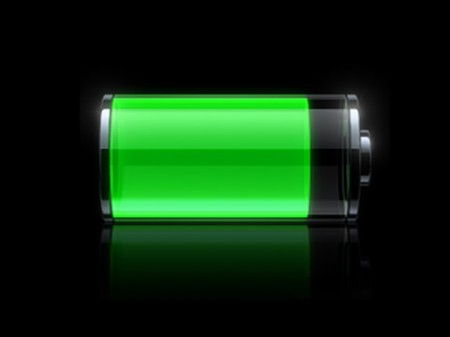One of the most complained about things on modern smartphones, is their battery life – and quite rightly.
After years of getting us used to increasing battery life on phones, smartphones came along and we all had to get used to charging our phones once or more a day.
However, is it entirely the phones fault?
I’ve spent the last 3 weeks almost entirely out and about in unfamiliar places, away from my normal charging regime and have had to explore different ways of keeping my phone going. Car chargers, spare battery, changing app sync schedules and searching for mains sockets I could borrow, were all employed to keep my Desire HD working – a phone not known for its long lasting.
Over this time though, I noticed something. The biggest problem was network reception.
If I was somewhere with weak signal, the battery disappeared like seconds on a stopwatch, but when I got to good reception, it barely moved (in comparison anyway). And this was not just my Desire HD – I have a Blackberry Torch for work that exhibited exactly the same traits. The phones used up more battery looking for a 3G signal, than doing anything else.
So is it really all phone manufacturers fault when our phones are flashing “10% left”, or should the networks with their patchy 3G coverage shoulder some blame?


Given this issue though, it would be nice if some of the manufacturers took account of rubbish signal and did something to help battery life in such circumstances.
I have a rubbish signal in one spot and it does seem to kill the battery. It’s as if the constant searching has a negative impact.
I also have a hd and poor signal at work so find putting it on to GSM only works wonders for both battery life and signal as it stays locked on and not constantly hunting for 3g , theres even an app 2g to 3g
I thought I could cope with never being more than 3 metres from a power socket and bought an iPhone.
I was forever texting my wife by lunchtime with my last 5% of power saying “I am not dead its just the battery that is”
The Apple forums said turn off the 3G, turn off push mail, turn off bluetooth – So if I do that don’t I just have the same as a normal phone that would cost 90% less and last for 5 days ?
I now have a Nokia N8 (which although it has many irritations of its own) has a great battery life even on 3G and push email I only have to charge it every two days.
I can also get a great signal while on the train when the iCommuters around me have nothing so I presume my Nokia spends a lot less time looking for a signal ?
Battery life and signal reception are intrinsicly linked.
If you are in an area of good coverage then the handset doesn’t have to work as hard (transmit power) to maintain a good radio link.
If you are in an area of poor coverage then the handset has to use more power (battery) to try to maintain a radio link within a specified QOS.
If you are in an area with no 3g coverage, then the handset switches to 2g and periodically searches for a usable 3g network. It is this continued background network searching that kills the battery. You could if you have the ability (root android phones etc) lock the phone to 2g. This way it will use less power due to the better underlying 2g networks and it will not continuously search for a 3g network to latch on to.
So in answer it is down to both the networks and the handset manufacturers. Networks for poor 3g network and manufacturers for producing slim handsets with tiny insufficient batteries.
There is a train of thought that you should be alter the frequency at which the handset searches for a usable 3g network in poor conditions, but this can’t be changed as it’s set down in the 3GPP.
When your further away from a base station, you need a lot more power to transmit/communiacte with the base station (inverse square law), so the device uses more battery.
2G coverage is generally better than 3G, and is lower power anyway with it’s lower data rates, so switching to 2G should boost battery life considerably.
Networks won’t blanket areas of the countryside in expensive 3G networks if therre are very few people living there, so they don’t, and so you get weak signal away from people. (Most of the coverage stats are based on total population, not on land area, so 90% coverage could miss out masses of land)
Nokia “dumb phones” have generally excellent battery life as they’re only using one processor for radio and application processing. Smartphones use two (so technically, most smartphones are “dual core”) which can lead to less battery life…
That’s why I always switch on airplane mode every time I go underground and switch to 2G when 3G reception is rubbish.